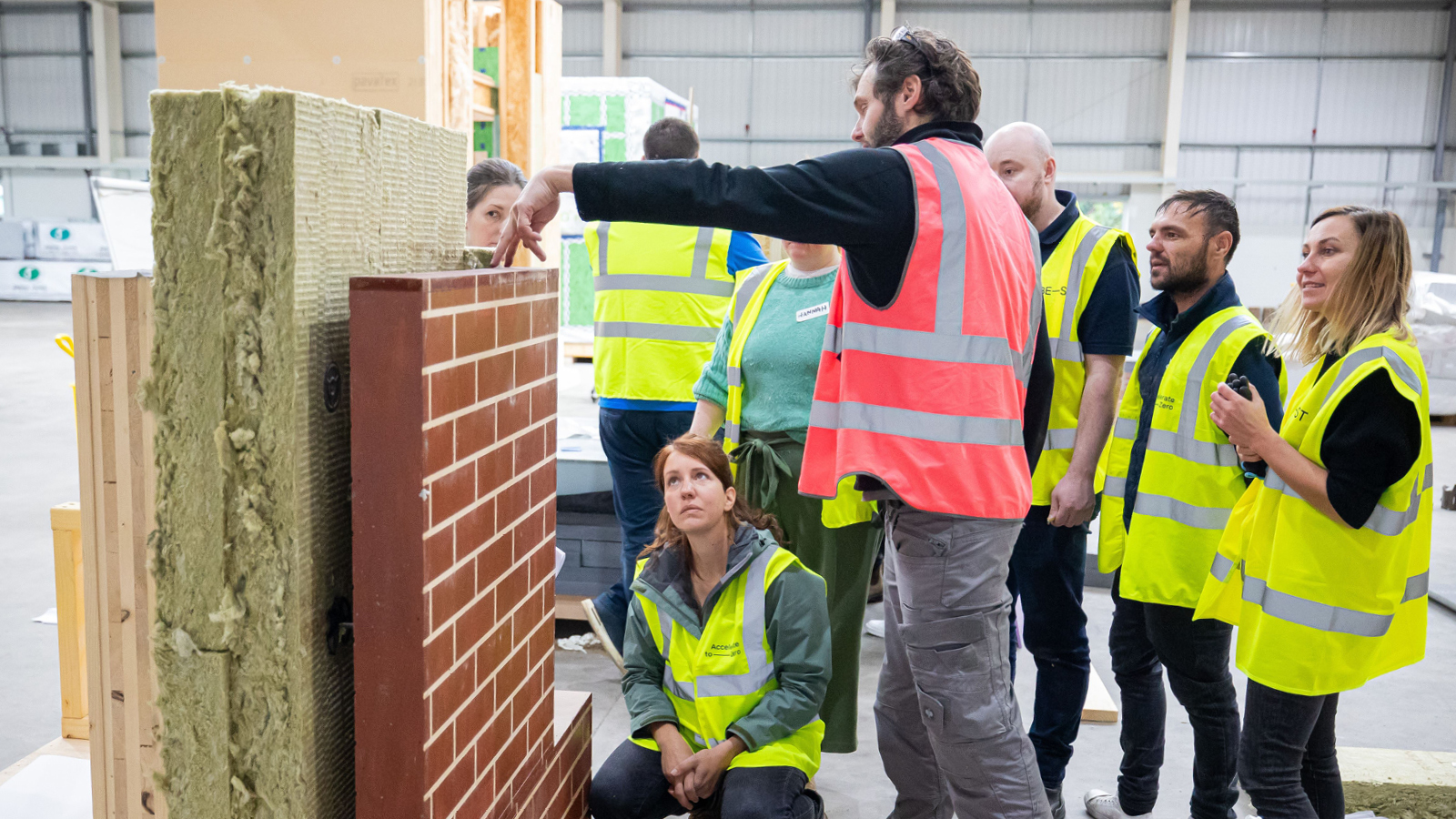SFC news published since 2018. See SFC archived content for earlier news articles.

Built Environment – Smarter Transformation (BE-ST), an innovation centre supported by the Scottish Funding Council, is focused on accelerating the built environment’s just transition to net zero carbon. BE-ST provides the connections, infrastructure and culture to solve industry’s most pressing challenges.
Through strategic partnerships, deep connections to industry bodies such as the Construction Leadership Forum and the Industry Leadership Group, and its unique role in the ecosystem between industry, academia and the public sector, for the past ten years BE-ST has brought together siloed stakeholders, working on small, often disconnected activities to transform them into more cohesive, strategic and impactful platforms for change.
By streamlining efforts and aligning academic expertise with industry demand, BE-ST has facilitated the creation of a vibrant ecosystem where higher education institutions can treat BE-ST’s campus as an extension of their campuses and easily tap into everything we have to offer.
As we mark our tenth anniversary, we are reflecting on the strategic role BE-ST has played in creating a melting pot of industry and academic innovation activity that accelerates the just transition to net zero carbon.
Transforming Timber
Since its launch, BE-ST has brought the rich academic expertise we have in Scotland to the forefront to solve some of industry and society’s most pressing challenges.
In 2015 Edinburgh Napier University was awarded the Queen’s Anniversary Prize for its work in advancing timber engineering, timber offsite construction, and wood science. Building on this recognition, BE-ST initiated collaborations with industry and academic partners to explore the commercialisation of UK-grown timber products and building systems and increase understanding of its environmental and economic advantages.
Funded by Innovate UK and led by BE-ST in partnership with Ecosystems Technologies, Edinburgh Napier University, and the University of Edinburgh, these collaborations have grown into Transforming Timber – a programme designed to enable industry and academia to work together to leverage the resource of Scottish forests to engineer products that complement or replace common more carbon intensive structural engineering materials and methods.
Phase one of Transforming Timber assessed feasibility of homegrown mass timber, while phase two saw the delivery of the UK’s first mass timber home and the development of a mass timber supply chain. The project also delivered several prototypes using Scottish timber for industry partners, the Scottish Government and the UK Government’s Department for Education at COP26. These projects, such as SNRG, GenZero, and NearHome, were constructed offsite, incorporating homegrown mass timber components manufactured at BE-ST’s Innovation Factory using the UK’s only vacuum press.
Transforming Timber has had a significant strategic impact. For example, following the GenZero project – which looked at how to deliver a new ultra-low carbon building standard for schools – the project team worked with the UK Department for Education to create a design guide for building schools using locally sourced timber and an offsite manufactured mass timber kit of parts. If fully scaled around 200 schools could be built annually this way.
The learnings from the Transforming Timber initiatives have been brought together to form an online knowledge library and position UK-grown mass timber as a first choice for specifiers, designers, and contractors.
Low Carbon Passport
As the Scottish Government introduces building standards that require higher energy efficiency, BE-ST has been supporting Scottish colleges and universities to meet the industry’s need for higher competency in relation to Passivhaus and energy efficiency skills. Passivhaus is a standard that focuses on creating energy-efficient homes through five key principles such as high-quality insulation, airtightness and a mechanical ventilation strategy that means minimal energy is needed to heat and cool the building. This brings benefits like increased thermal comfort, reduced energy bills and lowered emissions
To respond to this BE-ST has brought together Strathclyde University, Borders College, South Lanarkshire College and Glasgow School of Art to develop content for a certified course that delivers hands-on, practical training to construction operatives to equip them to work on Passivhaus and low carbon projects. This course, called the Low Carbon Passport, will take advantage of BE-ST’s training rigs, including the Tardis, a purpose-built test bay developed through a collaboration between Tier 1 contractors to advance thermal and airtightness testing in Passivhaus projects.
BE-ST holds a unique position in being able to facilitate this kind of course development and in enabling the further education sector to position itself as an asset to industry which can respond quickly to its needs. This collaboration between the colleges and partners will create a valuable training platform and support the increase in delivery of Scotland’s new wave of Passivhaus buildings.
As BE-ST marks its tenth anniversary, we reflect on our journey to becoming a national innovation asset supporting Scotland’s transition to net zero. Over the last decade, we’ve built trust with universities, colleges, and industry by connecting expertise with real-world needs – and this dedication will never change.
The transition to net zero will continue to throw up complex challenges. Moving forward we are committed to deepening these partnerships to scale initiatives and impact, with a particular focus on skills for net zero and the just transition.
If this sounds like where your organisational focus is, we invite you to reach out, to strengthen your ties with BE-ST and work with us to accelerate the journey to a net zero built environment.
Stephen Good, CEO of Built Environment – Smarter Transformation (BE-ST), 25 September 2024

